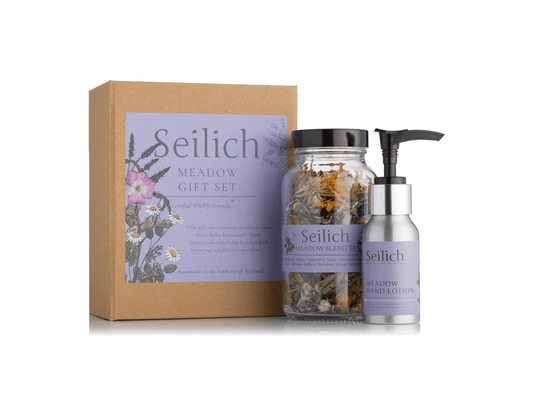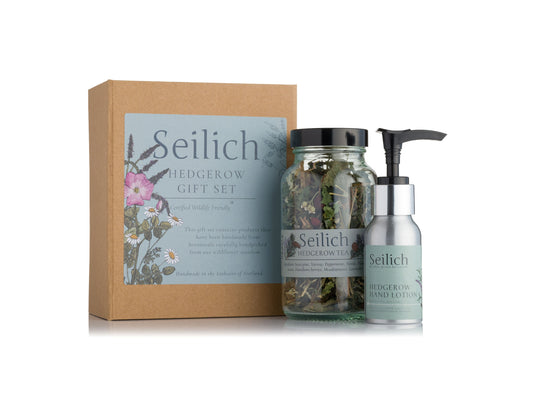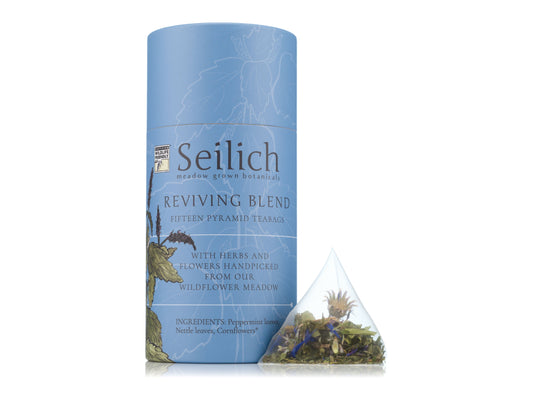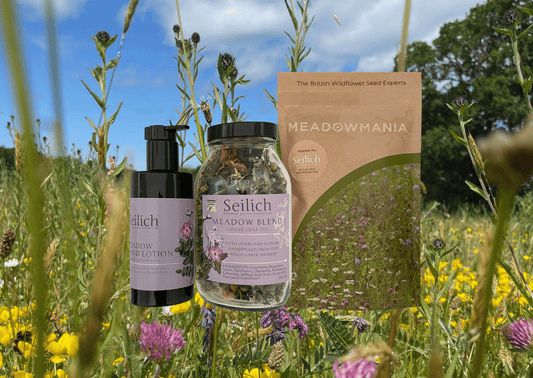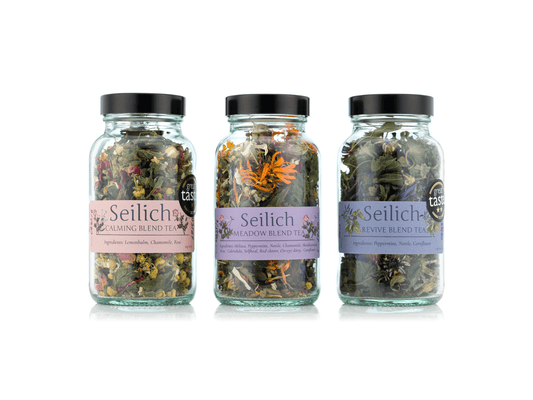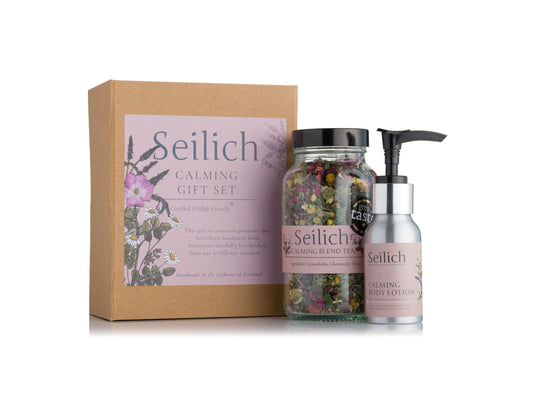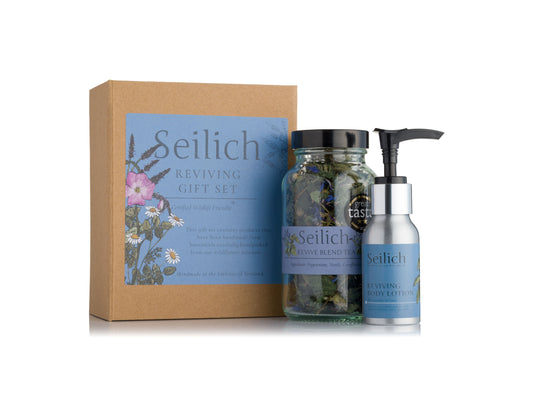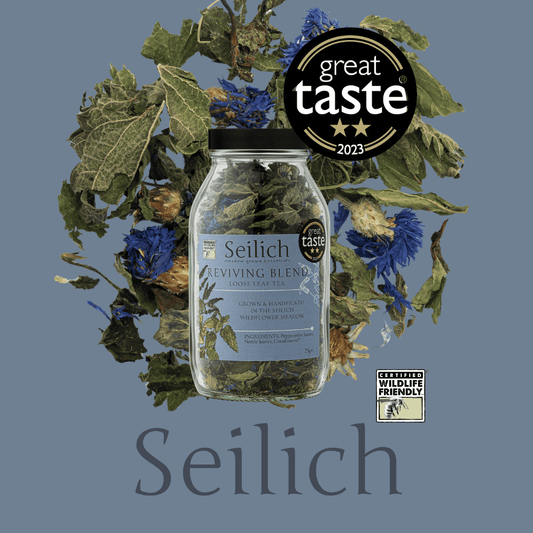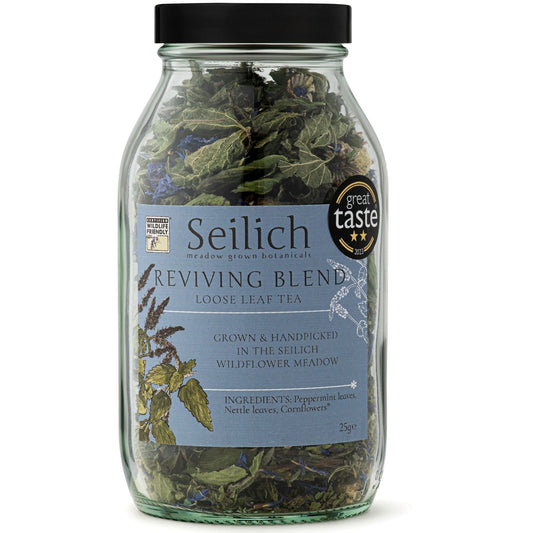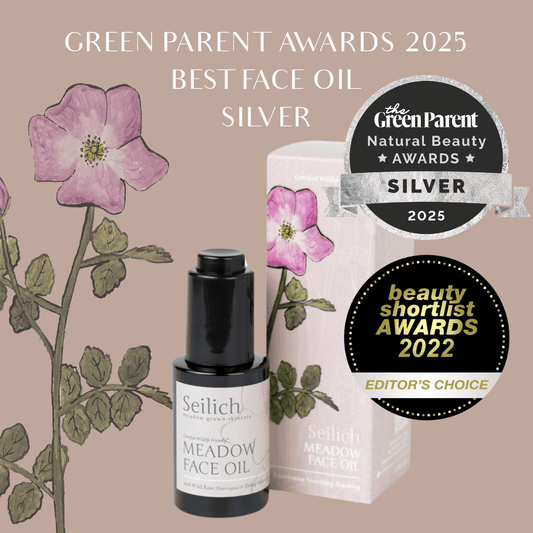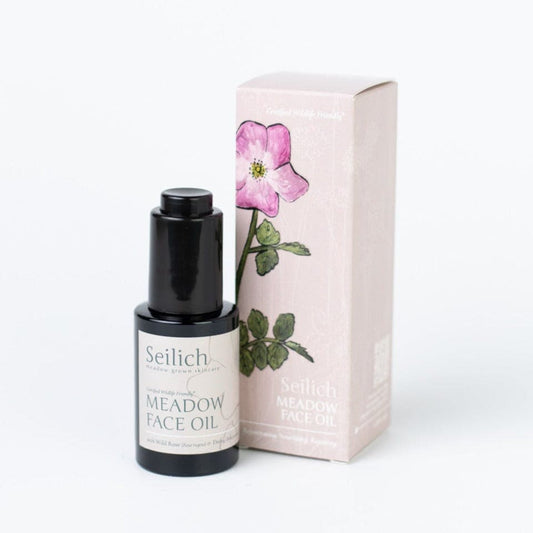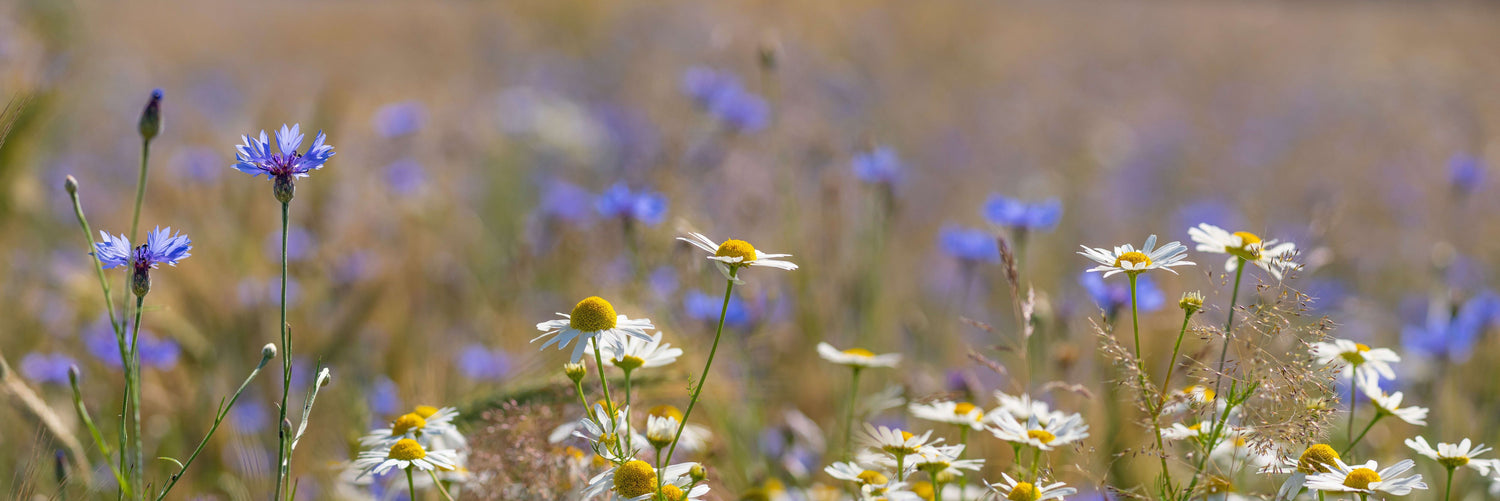Hydrosols Explained
What are Hydrosols?

Hydrosols (also known as floral waters, hydrolats and aromatic waters) are distilled plant waters. They contain a wealth of hugely powerful natural plant products known as volatile compounds; these include microparticles of essential oils as well as dissolved water-soluble compounds. They also contain cellular water which some describe as the essence or spirit of the plant. Potent energetic and therapeutic properties of the plant are therefore concentrated in hydrosols, making them wonderful for use in skincare products (see individual plant species we work with for their properties).
The levels of medicinal compounds naturally occurring in plants is dependent upon the specific environment the plant grew up in; our hydrosols are made from plants which we grow ourselves in our carefully hand-picked from our own biodiverse, ‘nature-full’ wildflower meadow. The plants themselves are therefore incredibly active, being wild plants rather than cultivated varieties grown in monocultures. The finished product, a Seilich hydrosol, is therefore an incredibly pure representation of nature; powerful and strong yet gentle on the skin. We don’t add any preservatives to our hydrosols, meaning they are entirely pure plant products. As well as being available as stand alone products, our hydrosols also form the basis of our skincare range. Where other products contain water (or ‘aqua’ on the ingredients label, we replace this with our precious hydrosols. It’s this special plant water that we believe makes our products so magical.
How are they made?

Hydrosols have been made and used by man for thousands of years (the oldest known still being around 4000 years old).
At Seilich we distil our hydrosols in small batches using plants that we grow ourselves within our wildflower meadow. This means that we are able to 1/ grow our plants in the most gentle way, following organic principles, 2/ harvest at the optimum time (for some species this may be the first dawn sunrise after they come into bloom, for others it may be at midday after a period of dry sunny weather) and 3/ work with the freshest plant material, with plants going from the meadow into the still within minutes. By taking frequent wanderings through the meadow we are able to tend to and check on all our plants, ensuring we are in tune with their rhythms.
We distil in a very mindful way, some species requiring a long slow distillation, others preferring a fiery hot shock! The hydrosols we produce are made in sterile conditions and double filtered before being tested for microbes to ensure absolute purity.






Frequently Asked Questions
1. How do botanical hydrosols compare to essential oils in terms of potency and efficacy? Do they offer similar therapeutic benefits?
In comparison to essential oils, botanical hydrosols are often considered gentler and milder due to their lower concentration of aromatic compounds. While essential oils are highly concentrated and potent, hydrosols contain diluted amounts of plant essences, making them suitable for more sensitive skin types and versatile in various applications. However, the specific therapeutic benefits of hydrosols may vary depending on the plant and the distillation process used.
2. Are there any potential side effects or precautions to consider when using botanical hydrosols? For example, are there any risks associated with allergic reactions or skin sensitivities?
When using botanical hydrosols, it's essential to consider potential side effects and precautions. While they are generally considered safe for topical use, there is still a possibility of allergic reactions or skin sensitivities, especially for individuals with sensitive skin or allergies to specific plants. It's advisable to perform a patch test before using a new hydrosol and to dilute them further if necessary, especially for sensitive skin types or when using them on children or pets.
3. Can botanical hydrosols be used internally, such as in cooking or ingesting for health benefits, or are they strictly for topical application?
Botanical hydrosols are primarily intended for external use, such as in skincare, aromatherapy, or as natural room sprays. While some hydrosols may be safe for internal use, such as in culinary applications or as dietary supplements, it's crucial to exercise caution and consult with a qualified healthcare professional before ingesting them. Not all hydrosols are suitable for internal use, and consuming them inappropriately can lead to adverse effects. Therefore, it's essential to read product labels carefully and seek guidance from experts when considering internal usage.
To see which hydrosols are currently on sale click here.
-
Meadow Hand Gift Set
Regular price £18.00 GBPRegular priceUnit price per -
Hedgerow Hand Gift Set
Regular price £18.00 GBPRegular priceUnit price per -
Herbal Tea Pyramid Bags
Regular price £10.50 GBPRegular priceUnit price per -
Wildflower Ritual Set
Regular price £40.00 GBPRegular priceUnit price per -
Herbal Tea Gift Set
Regular price £24.00 GBPRegular priceUnit price per -
Calming Body Gift Set
Regular price £18.00 GBPRegular priceUnit price per -
Reviving Body Gift Set
Regular price £18.00 GBPRegular priceUnit price per -
Reviving Blend Tea
Regular price £12.00 GBPRegular priceUnit price per -
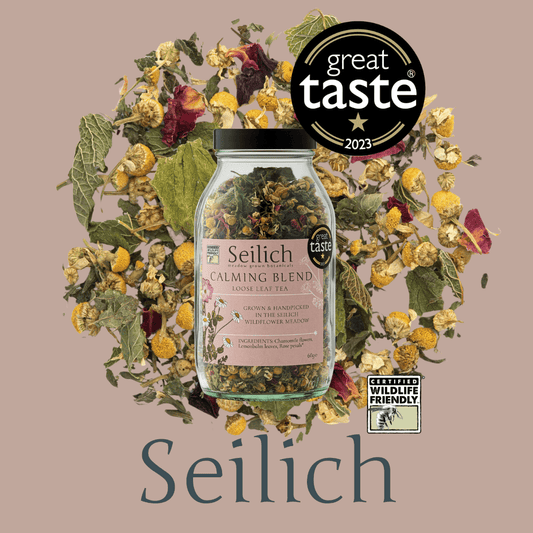
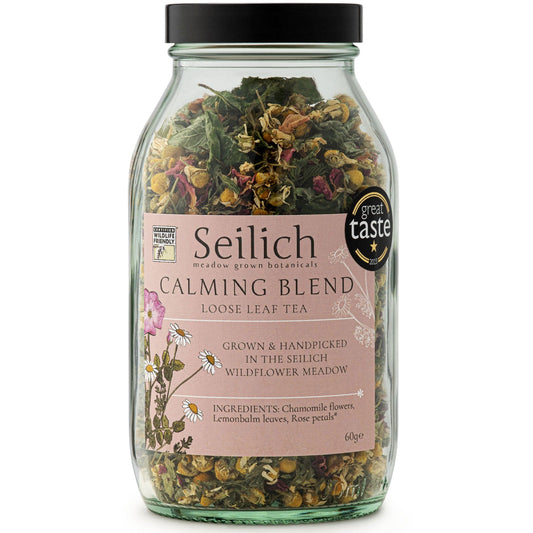 Sold out
Sold outCalming Blend Tea
Regular price £12.00 GBPRegular priceUnit price per -
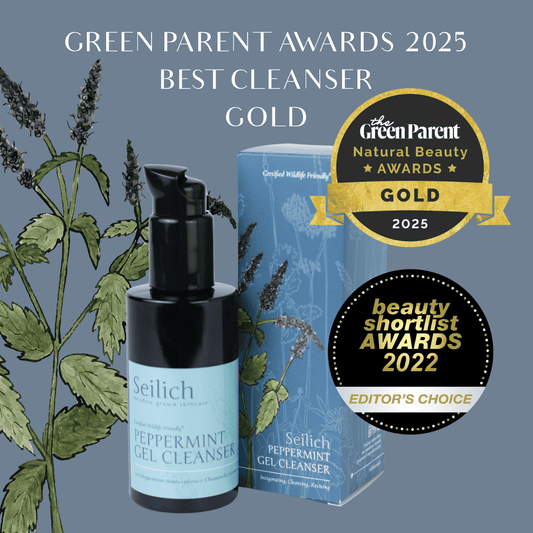
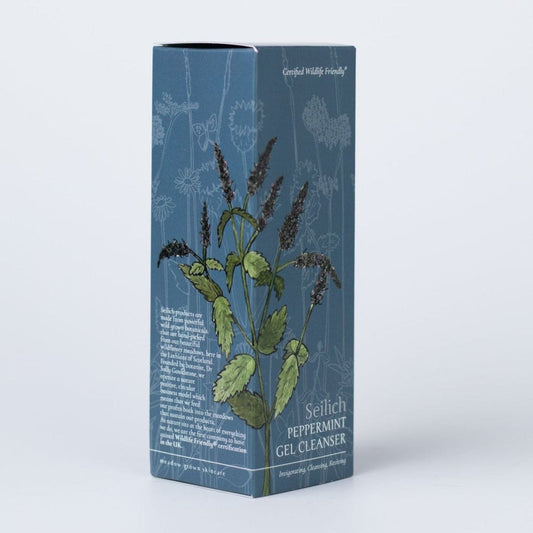 Sold out
Sold outPeppermint Cleansing Gel
Regular price £26.00 GBPRegular priceUnit price per -
Meadow Face Oil
Regular price £52.00 GBPRegular priceUnit price per -
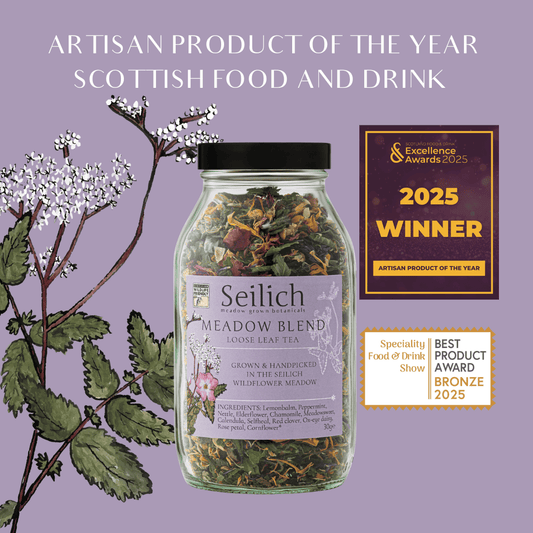
 Sold out
Sold outMeadow Blend Tea
Regular price £12.00 GBPRegular priceUnit price per


